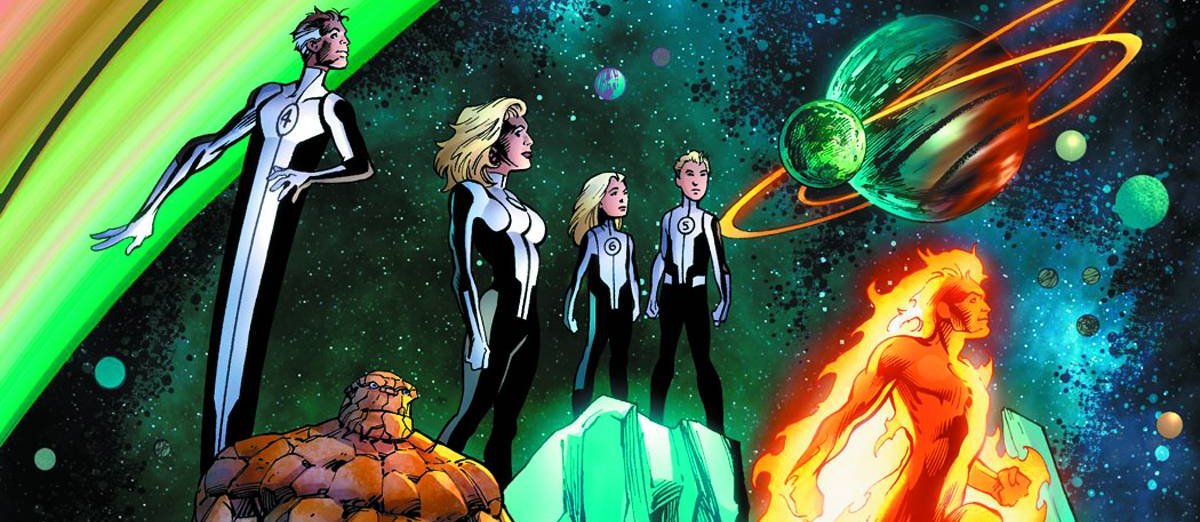Colourist: Matthew Wilson
Letterer: Clayton Cowles
After a five year gap since the previous mini-series, Phonogram has finally returned with The Immaterial Girl and - if this first issue is any indication - it continues to get better with each new volume. If the original arc, Rue Britannia, showcased the raw cleverness of Gillen's writing and stylishness of McKelvie's art in the early stages of their collaboration and comic book careers, then the next chapter, The Singles Club, brought with it a new focus and sense of discipline. It was tighter, easier to follow and never felt convoluted or got metatextual to the extent that it alienated the reader.
But whilst The Singles Club was more fun to read and far easier to follow, it was a little less ambitious than the story that had come before - essentially being a collection of one-shots, each focussing on a different character with the entire series taking place over the same club night out. The Immaterial Girl seems like both an obvious progression and combination of everything that came before. It's slick, disciplined and accessible like the second volume, with the ambition and world-building scope of its predecessor.
This time the story takes previous supporting regular Emily Aster and thrusts her into the spotlight, exploring her backstory. In doing so it jumps between different times of her life and, with them, naturally transports us to different musical 'scenes' with their own affectionately rendered fashions and obsessions - a set-up which plays right into Gillen and McKelvie's interests as they geek out over clothing, music, places, and fictionalised versions of people they knew. [To emphasise the amount of love and care that goes into detail: an offhand reference to the White Stripes having played "across town a few days ago" in the Brighton of November 2001 is completely accurate, according to a quick Google search.]
It could easily be read as smug or self-indulgent but what makes Phonogram (and with it the entire Gillen/McKelvie oeuvre) so great is that it's completely anti-cynical. It's fundamentally a celebration of loving whatever it is you love and doing it with total commitment - and though we see that via a tour through what moves and inspires the creators, you never get the feeling they're looking down on anything else (even if the characters themselves may be on occasion). The best example of this comes when a phonomancer* asks a random guy about his take on pop trio the Sugarbabes only to throw a punch he responds "my real take or ironic?" The guy isn't being punched for not liking the Sugarbabes (well, mostly) but for being pretentious and insincere. He's embarrassed about what he taps his feet to and that is why he must bare the brunt of Seth Bingo's pugilistic fury. Such is the verdict of Phonogram.
 |
| So good. |
I don't usually care a great deal about spoilers as a rule, but I genuinely don't want to write too much about what happens over the second half of the issue because it's really inventive and surprising (even if it is skillfully foreshadowed earlier in the issue). So go and read the comic because it's great stuff by brilliant creators - including regular colourist Matthew Wilson and letterer Clayton Cowles. I'll just conclude by writing that volume three is shaping up to be something really special and potentially more emotionally satisfying than the previous ones which have largely traded on being clever and funny. The first issue here has it all and is a really good indication of where Gillen and McKelvie are now as creators. Viewing it alongside those other two (still very good) arcs gives a strong indication of how their collaborative voice has matured.
As far as new readers go, I'd tend to echo the creators themselves in saying that The Singles Club is a perfect introduction to the style and humour of the thing, but I'd add those who know them from Wicked + Divine (another current Image title) or their run on Young Avengers at Marvel will have no problem jumping on here. You can probably come in completely cold too, but you'd probably get a bit more from it if you're plugged into their particular sensibilities beforehand.
*In Phonogram the idea that music is magic is made literal, with phonomancers those who can manipulate this power. Incidentally, the idea that songs are spells is best encapsulated in a small backup story in this issue, written by Gillen and drawn by Sarah Gordon, called Everything is Nothing, in which a Taylor Swift song that reminds a guy of a recent breakup is referred to as a "curse song". The man is question is compelled to play it seventeen times back to back and it summons his ex's ghost... because metaphor. It's a really good backup story.










